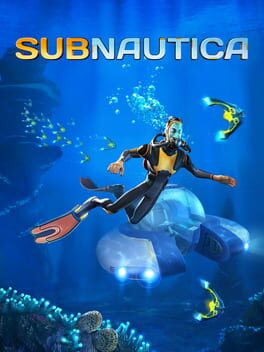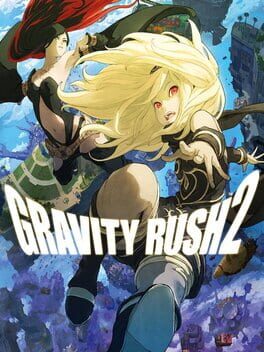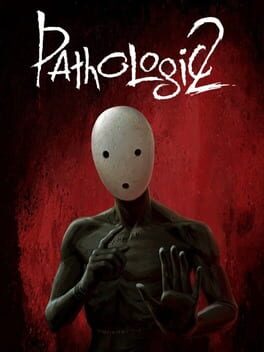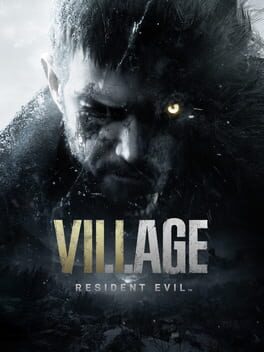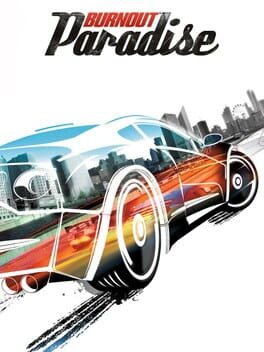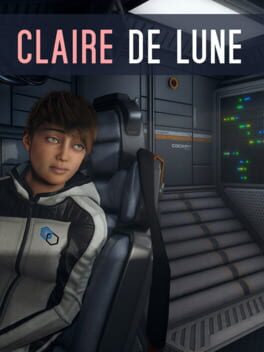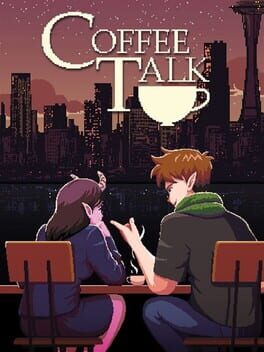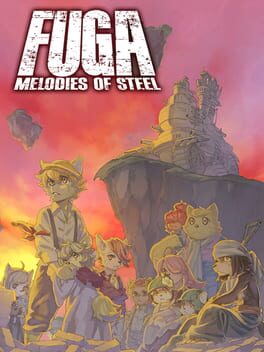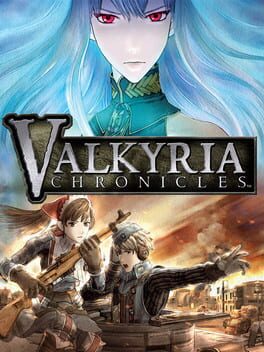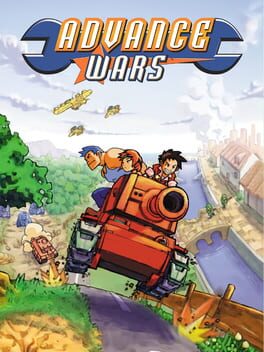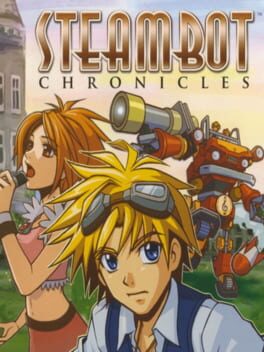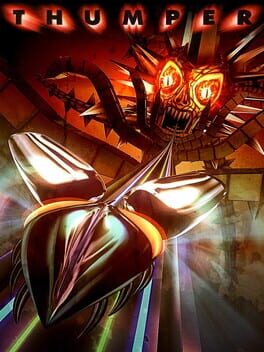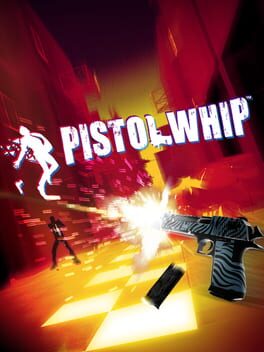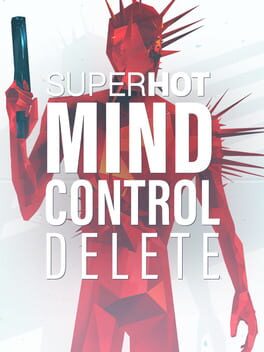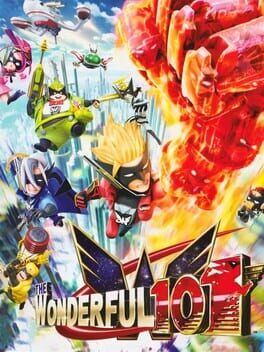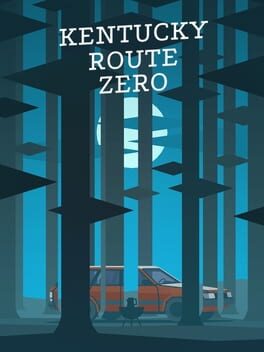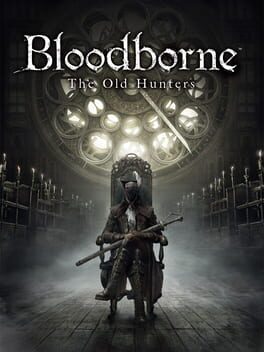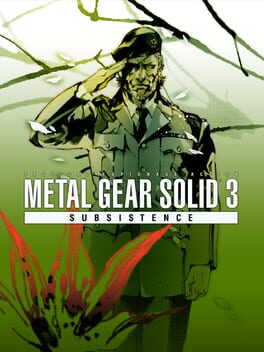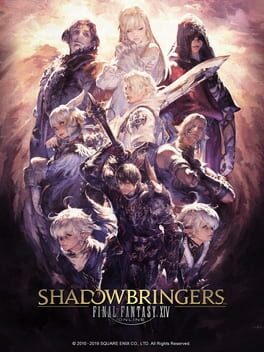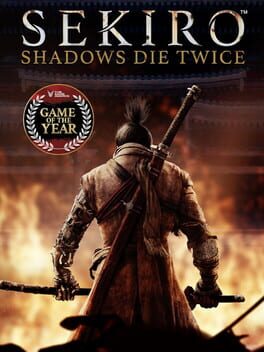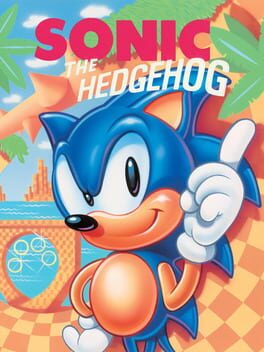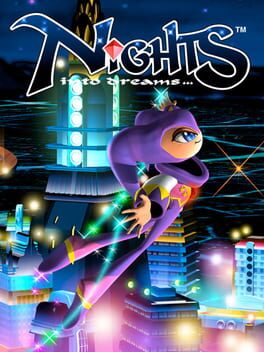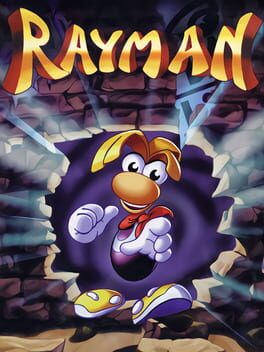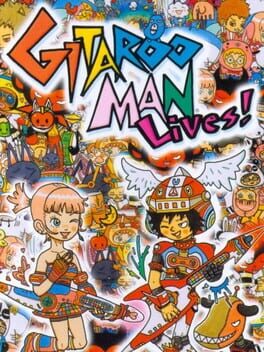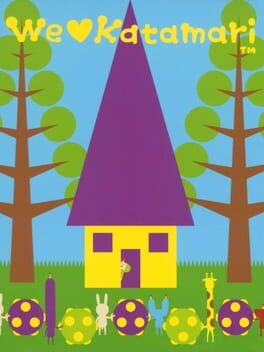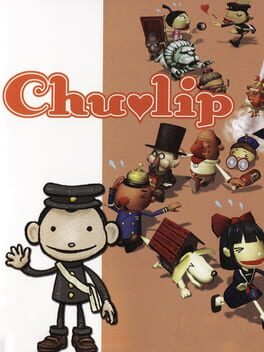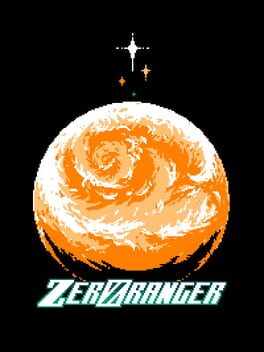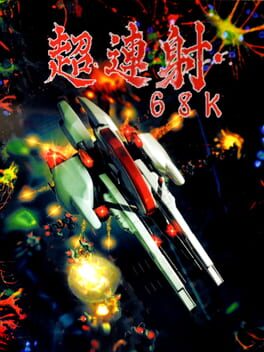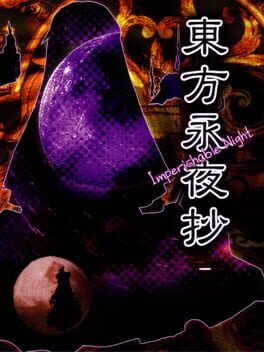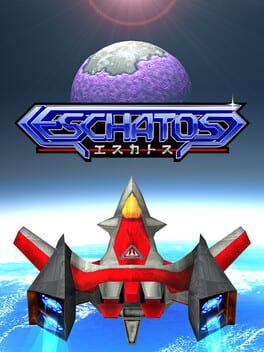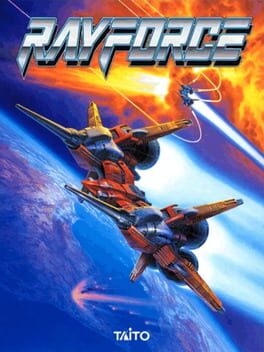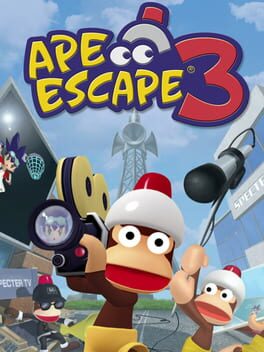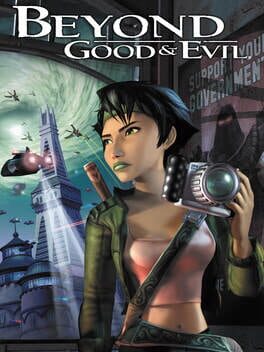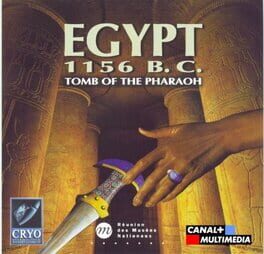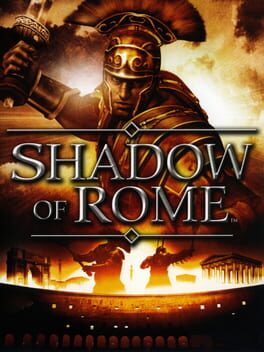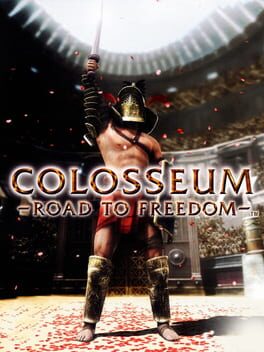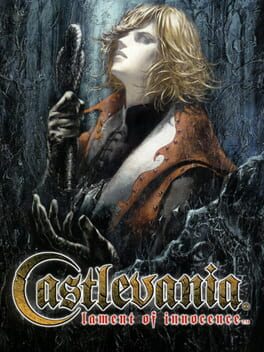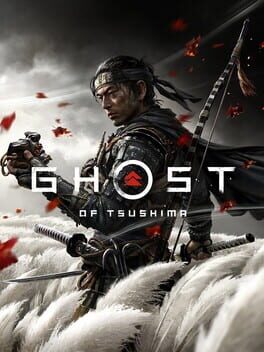MorningLight
118 reviews liked by MorningLight
I'm pretty certain if you asked me what the best game ever is, I'd probably say Disco Elysium? Not really in the sense that it's flawless or smarter than any every other game, though perhaps it is smarter than any other mainstream-focused western RPG. It's just this feeling I get both while playing and thinking back on it, how it's bigger than its own state of reality. It manages to do everything so successfully, and a lot of that is obviously subjective, but it's difficult to describe the game as anything but this triumphant experience where every moment that occurs within it lives with you afterwards. I talked a bit about this in my Mother 3 review about how in the Mother series' every minor NPC has meaningful dialogue, but Disco Elysium makes that almost feel untrue by comparison. Sometimes the seams show themselves, especially if you circle back through the dialogue or partake in savescumming, but I find even the seemingly inconsequential dialogue reverberating through my being -- elevated by bespoke, unforgettable voice work.
I'm sure someday some other game will replace it for "best game ever" in my silly little brain, or maybe that status will slowly decay on its own as those sorts of declarations often do. Regardless, I can't see Disco Elysium not continuing to be an incredibly special game, at the very least for the way it weaves meaningful, intelligent, and compassionate dialogue with actively engaging RPG systems that genuinely do advance the genre, and maybe even mainstream gaming as a whole, beyond being primarily violence and dopamine simulators.
I'm sure someday some other game will replace it for "best game ever" in my silly little brain, or maybe that status will slowly decay on its own as those sorts of declarations often do. Regardless, I can't see Disco Elysium not continuing to be an incredibly special game, at the very least for the way it weaves meaningful, intelligent, and compassionate dialogue with actively engaging RPG systems that genuinely do advance the genre, and maybe even mainstream gaming as a whole, beyond being primarily violence and dopamine simulators.
Signalis
2022
Certain video games don’t necessarily require innovation, originality or trailblazing to stand out from the crowd as works to be celebrated and classics to be. Specifically, titles in the indie scene such as Hyper Light Drifter, Dusk or ZeroRanger have proven time and time again that execution and presentation can far outweigh the well from which their ideas are stolen from, and whose aesthetic perfectionism and gameplay polish and varnish ultimately become the craft to be praised.
Signalis is one such title, unabashedly putting on full display its 5th gen survival horror roots and influences, both visually and mechanically, with a sci-fi coat of paint that covers it with a collage of homages to groundbreaking works that range from Evangelion, Blade Runner and Blame!, all the way to Tarkosvsky, Lynch and Lovecraft. Marrying Resident Evil’s resource management tension with Silent Hill’s purgatorial psychological assault lends Signalis the opportunity to evoke an unparalleled lyrical and dreamlike experience that never sacrifices the tenets from which those series made their name from, perfecting the art of environmental storytelling and backtracking revelatory dread.
In an age of understandably unsubtle and overbearing dystopian nightmares presented through art, Signalis instead places much of its totalitarian regime imagery into the background of its setting, visuals, lore and puzzles, making its love story of inevitable tragedy the central core of the narrative. The retrofuturism of Signalis serves not only as an artistic pursuit for tactile and analogue nostalgia, but also as a tool to convey the priorities of a fascist empire that has consciously dwindled the mental liberty, self-expression and unconformity of the main characters now stuck in an ever perpetuating restrictive world of redundancy and self-mutilation, doomed to a slow, empty death.
The cohesiveness in which Signalis threads its story, gameplay and art design is ultimately the game’s greatest feat. It elevates an otherwise universal and familiar language to new heights, thanks to a talented dev duo that understands the strengths of their interests and influences and manages to funnel into a production effort that would put many triple A endeavors to shame. Can’t wait for what rose-engine has in store next, this is a homerun already.
Signalis is one such title, unabashedly putting on full display its 5th gen survival horror roots and influences, both visually and mechanically, with a sci-fi coat of paint that covers it with a collage of homages to groundbreaking works that range from Evangelion, Blade Runner and Blame!, all the way to Tarkosvsky, Lynch and Lovecraft. Marrying Resident Evil’s resource management tension with Silent Hill’s purgatorial psychological assault lends Signalis the opportunity to evoke an unparalleled lyrical and dreamlike experience that never sacrifices the tenets from which those series made their name from, perfecting the art of environmental storytelling and backtracking revelatory dread.
In an age of understandably unsubtle and overbearing dystopian nightmares presented through art, Signalis instead places much of its totalitarian regime imagery into the background of its setting, visuals, lore and puzzles, making its love story of inevitable tragedy the central core of the narrative. The retrofuturism of Signalis serves not only as an artistic pursuit for tactile and analogue nostalgia, but also as a tool to convey the priorities of a fascist empire that has consciously dwindled the mental liberty, self-expression and unconformity of the main characters now stuck in an ever perpetuating restrictive world of redundancy and self-mutilation, doomed to a slow, empty death.
The cohesiveness in which Signalis threads its story, gameplay and art design is ultimately the game’s greatest feat. It elevates an otherwise universal and familiar language to new heights, thanks to a talented dev duo that understands the strengths of their interests and influences and manages to funnel into a production effort that would put many triple A endeavors to shame. Can’t wait for what rose-engine has in store next, this is a homerun already.
Subnautica
2014
Probably the best non-horror horror games I've played. The way it captures the visceral terror of swimming out into the sea and not seeing the bottom of the ocean, not seeing anything at all, but hearing strange and alien sounds in the distance, coming from things you can't see but know could kill you? Pure adrenaline joy.
That terror loses most of its impact upon a replay, however I find that the atmosphere and world and just the feel of the gameplay instead just replace the terror with fun? Like, it's a beautiful world, you're swimming around it, there's a satisfying loop of exploration and crafting and survival, and you can even get creative with the base building stuff.
Even if you're not into those bits, playing it even once is definitely worth it just to be scared shitless a couple of times.
This is one of those games that could and probably will end up becoming a nostalgic favorite for a lot of people. I think it will easily become that for me.
Definitely give it a go. And if you're playing it for the first time, I'd recommend reading as many of the "codex" entries as you can, because most of the story plays out in text and audio logs. It's a very subtle presence and the game's events can feel a bit nonsensical if you don't bother to read the updates in the PDA and some other scan data. And yes, this is a survivial crafting game with an actual story and an actual ending. I think that really makes the experience feel focused and complete where a lot of other craft-em-ups can end up becoming stale if you just keep playing them. Subnautica doesn't outstay its welcome, and if you go back, you do it because you want to, not because you feel like you have to.
That terror loses most of its impact upon a replay, however I find that the atmosphere and world and just the feel of the gameplay instead just replace the terror with fun? Like, it's a beautiful world, you're swimming around it, there's a satisfying loop of exploration and crafting and survival, and you can even get creative with the base building stuff.
Even if you're not into those bits, playing it even once is definitely worth it just to be scared shitless a couple of times.
This is one of those games that could and probably will end up becoming a nostalgic favorite for a lot of people. I think it will easily become that for me.
Definitely give it a go. And if you're playing it for the first time, I'd recommend reading as many of the "codex" entries as you can, because most of the story plays out in text and audio logs. It's a very subtle presence and the game's events can feel a bit nonsensical if you don't bother to read the updates in the PDA and some other scan data. And yes, this is a survivial crafting game with an actual story and an actual ending. I think that really makes the experience feel focused and complete where a lot of other craft-em-ups can end up becoming stale if you just keep playing them. Subnautica doesn't outstay its welcome, and if you go back, you do it because you want to, not because you feel like you have to.
Outer Wilds
2019
Gravity Rush 2
2017
I'm kind of amazed how much this game endeared itself to me considering how much I do not enjoy so many core parts of the gameplay. The mission design is the biggest culprit here; lots of incessantly running back and forth between npcs to deliver information, spamming the talk button on every person in an area until one actually responds to you, ponderous stealth missions that can often be trivialised due to you being able to fly and walk on walls. The combat has you fighting the same five enemies all throughout the game's playtime as you spam your same small arsenal of moves in the same way you did fifteen hours ago, the talismans and level-up system cram in rpg mechanics that are largely superfluous to the experience, and any of the challenges that place demands on your dexterity are undone by the controls being fairly sloppy and imprecise.
But despite all of this, I actually had a pretty good time and even checked out some of the side-content after completing the main storyline. Part of this is the wonderful art direction, the charming characters, the moments of wacky creativity, the game certainly has things going for it outside of the actual gameplay, but mostly the big draw here is the vibes. A bit of a weird comparison, but Gravity Rush 2 actually reminds me pretty strongly of Super Mario Sunshine; sloppy and often frustrating gameplay, especially when you're trying to engage with what the game wants you to actually be doing, but such a relaxing, fun atmosphere to everything that just existing in these spaces carries a certain joy to it regardless. The big difference here is that whilst Sunshine has enclosed levels, and is always nudging you along towards your next accomplishment, Gravity Rush 2 is an open world game that is very content to let you just fly around achieving not-very-much if that's what you really want to do. The moment I escaped the starting area and found the open world I legit spent over three hours flying around it, weaving my way through pieces of largely-meaningless currency that were strewn about, rather than engaging with any of the actual Content, because the vibes were just that good and left me actually able to relax for a while.
Sometimes all you need is some chill music, some enticing locales, and the freedom to gently flop through the skies wherever your heart desires.
But despite all of this, I actually had a pretty good time and even checked out some of the side-content after completing the main storyline. Part of this is the wonderful art direction, the charming characters, the moments of wacky creativity, the game certainly has things going for it outside of the actual gameplay, but mostly the big draw here is the vibes. A bit of a weird comparison, but Gravity Rush 2 actually reminds me pretty strongly of Super Mario Sunshine; sloppy and often frustrating gameplay, especially when you're trying to engage with what the game wants you to actually be doing, but such a relaxing, fun atmosphere to everything that just existing in these spaces carries a certain joy to it regardless. The big difference here is that whilst Sunshine has enclosed levels, and is always nudging you along towards your next accomplishment, Gravity Rush 2 is an open world game that is very content to let you just fly around achieving not-very-much if that's what you really want to do. The moment I escaped the starting area and found the open world I legit spent over three hours flying around it, weaving my way through pieces of largely-meaningless currency that were strewn about, rather than engaging with any of the actual Content, because the vibes were just that good and left me actually able to relax for a while.
Sometimes all you need is some chill music, some enticing locales, and the freedom to gently flop through the skies wherever your heart desires.
Silent Hill 2
2001
Content Warning for Attempted Suicide, Terminal Illness, Death, and Chronic Illness
----------------------------------------------------------------------------------------
It’s September 2011 and I’m seventeen years old when I try to kill myself. There are two ponds near my parent’s house. It’s like 4 AM. I like to be out this early. Nobody else is awake, and they won’t be for a while. It’s like the whole world belongs to me. I wander around between the neighborhoods, along the roads, and in the fields. In ten years these will be fresh real estate properties but today they’re still farmland. This hour and a half is the only time the anxiety quells. The real world never knows peace. There’s a dread that accompanies every action and every moment; living in that house, going to school, hanging out with my friends (are they my friends? They are but I won’t be able to understand that until I’m healthier). I’ll always have to go back home. I’ll never be able to articulate what’s happening to me. The pressure is too intense. I don’t plan it, but, the pond is right there, and it’s deep enough, and early enough that no one will hear me. Not having a plan is what saves my life. Turns out impromptu self-drownings are difficult to pull off when the water is still and not THAT deep. So, it doesn’t work, and I’m soaked, and grateful to get home and hide the evidence before my parents wake up, but I don’t feel BETTER. I feel despair, still. There’s no way out. I wish I could just climb up the stairwell, out of this. I wish I had the clarity to understand what was wrong with me.
----------------------------------------------------------------------------------------
What do you even say about Silent Hill 2? To say that it’s one of the best video games ever made feels simultaneously obvious and like I’m underselling it, right? Fuckin, uhhhh, Resident Evil 2 is one of the best video games ever made. Ace Attorney 3 is one of the best games ever made. Come on! When we see people talk about old games that they like they’ll so often say stuff like “it holds up really well for its age” or some similar comment that implies that progress is the same as quality. This is, of course, nonsense. I wouldn’t say video games are better as a medium in 2021 than they were in 2001; on the whole and in the mainstream I would say they’re demonstrably worse in almost every way – how they look, how they sound, how they feel. Silent Hill 2 was a AAA game. What do we get now instead? Far Cry 6? The fuckin, THE MEDIUM? We’ve lost everything in pursuit of bad lighting and looking like a mediocre episode of whatever was popular on HBO three years ago. Silent Hill 2 looks great and sounds great and fuck you it plays great too it feels good and even the puzzles are MOSTLY FINE. MOSTLY. Listen I’m saying this is the all time best video game I’m not saying it fuckin ended world hunger.
----------------------------------------------------------------------------------------
It’s October 2012, I’m nineteen and I’m sitting in a business communications class when I get the text confirmation that Sam’s brain tumor is back, again. It’s not the first time, and I know that there’s nothing left to do, he’s going to die. It’s fast, untreated. He’s one of my best friends, and the only person I know from home who went to the same college as me, but we live really far apart on a big urban campus and I haven’t seen him as much as I’d have liked to. Now he’s gonna spend the rest of his time with his family back home. When I see him next it’s at a hometown charity event for his family in December. He’s unrecognizable physically, and he can’t speak. The event is at our old catholic elementary school, in the gym, where in the years since we graduated they’ve painted a giant tiger on the wall. It’s the school mascot. I feel incredibly awkward around him and spend most of the time away with our other friends. I only speak to him briefly, and when I do it’s a stupid joke about the tiger mural. These will be my last words to him. I do know this will be the case, I think. Later that month I’ll be one of his pallbearers. I spend a lot of time angry and ashamed of myself for not being better to him, not knowing how to act or what to say. I’m about to drop out of school for reasons financial and related to my mental health.
----------------------------------------------------------------------------------------
So what DO you say about Silent Hill 2? That it’s a masterpiece? That it’s the most well-conceived and executed video game ever made? That every detail of it dovetails into every other in a legitimately perfect cocktail story, presentation, and play? That the performances, cinematography, soundscape, all of it are untouchably top of their class? That when Mary reads the letter at the end I WEEP because it’s one of the best pieces of acting I’ve ever heard? That if I ever meet Troy Baker it’s ON SIGHT? These things are all true. We all know it. Everybody knows this. It’s Silent Hill 2.
----------------------------------------------------------------------------------------
It’s August 2019, I’m twenty-five and I’ve just managed to graduate college in time to move to a new city with my partner as she enters her third year of medical school. That’s the year they kick you out of the classroom and you start going to the hospitals to do your real hands-on training month to month. I’m job hunting unsuccessfully and we’re living exclusively off her loans, when what seems at first like a pulled lower back muscle becomes a fruitless early morning ER trip (five hours, no results, not seen by a doctor) becomes an inability to get out of bed becomes a forced leave of absence. Without a diagnosis she can’t get disability accommodations. While on a leave of absence we can’t have her loans, and in fact we have to pay them back. We’re getting desperate, thousands of dollars in debt, and I take the first soul sucking job I can find. It takes almost a full year of visits to increasingly specialized physicians but eventually my partner is diagnosed with non radiographic axial spondyloarthritis, an extremely rare condition that culminates in the fusion of the spinal column. We can treat the pain, sort of, but it’s only a matter of time until it’s likely to evolve into a more serious condition, she’ll never have the strength or stamina she had before, and the treatment options are expensive and difficult. Her diagnosis doesn’t even officially exist as a recognized condition that people can have until September 2020.
Suddenly I am a caretaker and everything is different now. Obviously our mood is stressed from the financial dangers, but she’s in pain, terrible pain, constantly for months. She can’t sleep, she can’t eat. There’s nothing I can do. It’s exhausting to live like that. She’s depressed. On good days we try to walk outside but good days are few and far between, and grow fewer over time, and her body makes her pay for the walks. She’s on drugs, a lot of them. Do they help? It’s unclear. They don’t make her feel BETTER. Nobody knows what’s wrong with her. Her school thinks she’s faking, they’re trying to concoct ways to get her kicked out. She wants to die. It breaks my heart. She’s everything to me, all that there is. She has literally saved my life. And I can’t help her. But it’s exhausting for me too. I don’t want to admit this, not even privately, to myself. It is hard to be the person who is leaned on, especially when the person you love can’t give anything back. I’m tired. I’m not angry, and I don’t think I’m resentful. But I’m tired. I feel shame for thinking about it, for acknowledging it. I know it’s silly to feel the shame but it’s there. I do find a job eventually, thankfully, but it’s still a long time before we get a diagnosis, much less an effective treatment. Even after things settle somewhat, it’s a hard year. And there are hard times to come.
----------------------------------------------------------------------------------------
Ever since I first played it as a teen, Silent Hill 2 is a game that has haunted me through life, like a memory. It struck a deep chord with me when I was too young for that to be fair, too young to identify why I could relate to these people and their ghosts. I used to think this was a special relationship that I had with the game, the way you kind of want to think you have these when you’re younger, but the older I get the more I recognize this as part of growing up. Silent Hill 2 doesn’t resonate with me because I’ve encountered situations in life that closely mirror that of the protagonist. I mean, Angela’s story resonates deeply with me despite little overlap in the specifics of our family traumas. Silent Hill 2 touches me – and most of us – so deeply, because it has such a keen understanding of what it feels like to be Going Through It. It is a game that knows what it is to grieve, to despair, to soak in the fog, and also, maybe, to feel a catharsis, if you’re lucky, and you do the work.
I’ve been Angela, parts of her. I’ve been Laura too. I’ve had more James in me than I would prefer. I suspect all of us have these people, these feelings in us, to some degree or another. We collect them as we get older. That’s just part of it. Silent Hill 2 isn’t a happy game, but it’s one that Gets It, and lets us explore those spaces in a safe and cathartic way. It does this about as well as any piece of media I’ve encountered, on top of being so excellent at all the cinematic and video game stuff. But that’s really what makes it what it is. The empathy, and the honesty. I think it’s beautiful.
----------------------------------------------------------------------------------------
It’s September 2011 and I’m seventeen years old when I try to kill myself. There are two ponds near my parent’s house. It’s like 4 AM. I like to be out this early. Nobody else is awake, and they won’t be for a while. It’s like the whole world belongs to me. I wander around between the neighborhoods, along the roads, and in the fields. In ten years these will be fresh real estate properties but today they’re still farmland. This hour and a half is the only time the anxiety quells. The real world never knows peace. There’s a dread that accompanies every action and every moment; living in that house, going to school, hanging out with my friends (are they my friends? They are but I won’t be able to understand that until I’m healthier). I’ll always have to go back home. I’ll never be able to articulate what’s happening to me. The pressure is too intense. I don’t plan it, but, the pond is right there, and it’s deep enough, and early enough that no one will hear me. Not having a plan is what saves my life. Turns out impromptu self-drownings are difficult to pull off when the water is still and not THAT deep. So, it doesn’t work, and I’m soaked, and grateful to get home and hide the evidence before my parents wake up, but I don’t feel BETTER. I feel despair, still. There’s no way out. I wish I could just climb up the stairwell, out of this. I wish I had the clarity to understand what was wrong with me.
----------------------------------------------------------------------------------------
What do you even say about Silent Hill 2? To say that it’s one of the best video games ever made feels simultaneously obvious and like I’m underselling it, right? Fuckin, uhhhh, Resident Evil 2 is one of the best video games ever made. Ace Attorney 3 is one of the best games ever made. Come on! When we see people talk about old games that they like they’ll so often say stuff like “it holds up really well for its age” or some similar comment that implies that progress is the same as quality. This is, of course, nonsense. I wouldn’t say video games are better as a medium in 2021 than they were in 2001; on the whole and in the mainstream I would say they’re demonstrably worse in almost every way – how they look, how they sound, how they feel. Silent Hill 2 was a AAA game. What do we get now instead? Far Cry 6? The fuckin, THE MEDIUM? We’ve lost everything in pursuit of bad lighting and looking like a mediocre episode of whatever was popular on HBO three years ago. Silent Hill 2 looks great and sounds great and fuck you it plays great too it feels good and even the puzzles are MOSTLY FINE. MOSTLY. Listen I’m saying this is the all time best video game I’m not saying it fuckin ended world hunger.
----------------------------------------------------------------------------------------
It’s October 2012, I’m nineteen and I’m sitting in a business communications class when I get the text confirmation that Sam’s brain tumor is back, again. It’s not the first time, and I know that there’s nothing left to do, he’s going to die. It’s fast, untreated. He’s one of my best friends, and the only person I know from home who went to the same college as me, but we live really far apart on a big urban campus and I haven’t seen him as much as I’d have liked to. Now he’s gonna spend the rest of his time with his family back home. When I see him next it’s at a hometown charity event for his family in December. He’s unrecognizable physically, and he can’t speak. The event is at our old catholic elementary school, in the gym, where in the years since we graduated they’ve painted a giant tiger on the wall. It’s the school mascot. I feel incredibly awkward around him and spend most of the time away with our other friends. I only speak to him briefly, and when I do it’s a stupid joke about the tiger mural. These will be my last words to him. I do know this will be the case, I think. Later that month I’ll be one of his pallbearers. I spend a lot of time angry and ashamed of myself for not being better to him, not knowing how to act or what to say. I’m about to drop out of school for reasons financial and related to my mental health.
----------------------------------------------------------------------------------------
So what DO you say about Silent Hill 2? That it’s a masterpiece? That it’s the most well-conceived and executed video game ever made? That every detail of it dovetails into every other in a legitimately perfect cocktail story, presentation, and play? That the performances, cinematography, soundscape, all of it are untouchably top of their class? That when Mary reads the letter at the end I WEEP because it’s one of the best pieces of acting I’ve ever heard? That if I ever meet Troy Baker it’s ON SIGHT? These things are all true. We all know it. Everybody knows this. It’s Silent Hill 2.
----------------------------------------------------------------------------------------
It’s August 2019, I’m twenty-five and I’ve just managed to graduate college in time to move to a new city with my partner as she enters her third year of medical school. That’s the year they kick you out of the classroom and you start going to the hospitals to do your real hands-on training month to month. I’m job hunting unsuccessfully and we’re living exclusively off her loans, when what seems at first like a pulled lower back muscle becomes a fruitless early morning ER trip (five hours, no results, not seen by a doctor) becomes an inability to get out of bed becomes a forced leave of absence. Without a diagnosis she can’t get disability accommodations. While on a leave of absence we can’t have her loans, and in fact we have to pay them back. We’re getting desperate, thousands of dollars in debt, and I take the first soul sucking job I can find. It takes almost a full year of visits to increasingly specialized physicians but eventually my partner is diagnosed with non radiographic axial spondyloarthritis, an extremely rare condition that culminates in the fusion of the spinal column. We can treat the pain, sort of, but it’s only a matter of time until it’s likely to evolve into a more serious condition, she’ll never have the strength or stamina she had before, and the treatment options are expensive and difficult. Her diagnosis doesn’t even officially exist as a recognized condition that people can have until September 2020.
Suddenly I am a caretaker and everything is different now. Obviously our mood is stressed from the financial dangers, but she’s in pain, terrible pain, constantly for months. She can’t sleep, she can’t eat. There’s nothing I can do. It’s exhausting to live like that. She’s depressed. On good days we try to walk outside but good days are few and far between, and grow fewer over time, and her body makes her pay for the walks. She’s on drugs, a lot of them. Do they help? It’s unclear. They don’t make her feel BETTER. Nobody knows what’s wrong with her. Her school thinks she’s faking, they’re trying to concoct ways to get her kicked out. She wants to die. It breaks my heart. She’s everything to me, all that there is. She has literally saved my life. And I can’t help her. But it’s exhausting for me too. I don’t want to admit this, not even privately, to myself. It is hard to be the person who is leaned on, especially when the person you love can’t give anything back. I’m tired. I’m not angry, and I don’t think I’m resentful. But I’m tired. I feel shame for thinking about it, for acknowledging it. I know it’s silly to feel the shame but it’s there. I do find a job eventually, thankfully, but it’s still a long time before we get a diagnosis, much less an effective treatment. Even after things settle somewhat, it’s a hard year. And there are hard times to come.
----------------------------------------------------------------------------------------
Ever since I first played it as a teen, Silent Hill 2 is a game that has haunted me through life, like a memory. It struck a deep chord with me when I was too young for that to be fair, too young to identify why I could relate to these people and their ghosts. I used to think this was a special relationship that I had with the game, the way you kind of want to think you have these when you’re younger, but the older I get the more I recognize this as part of growing up. Silent Hill 2 doesn’t resonate with me because I’ve encountered situations in life that closely mirror that of the protagonist. I mean, Angela’s story resonates deeply with me despite little overlap in the specifics of our family traumas. Silent Hill 2 touches me – and most of us – so deeply, because it has such a keen understanding of what it feels like to be Going Through It. It is a game that knows what it is to grieve, to despair, to soak in the fog, and also, maybe, to feel a catharsis, if you’re lucky, and you do the work.
I’ve been Angela, parts of her. I’ve been Laura too. I’ve had more James in me than I would prefer. I suspect all of us have these people, these feelings in us, to some degree or another. We collect them as we get older. That’s just part of it. Silent Hill 2 isn’t a happy game, but it’s one that Gets It, and lets us explore those spaces in a safe and cathartic way. It does this about as well as any piece of media I’ve encountered, on top of being so excellent at all the cinematic and video game stuff. But that’s really what makes it what it is. The empathy, and the honesty. I think it’s beautiful.
Pathologic 2
2019
Disempowerment is nothing new in videogames. Over the decades, many have dabbled in the art of taking stuff away from the player, usually as narrative device that reflects through interactivity the lowest point of a character's story arc or as a tool to instill a sense of tangible dread as you no longer have access to familiar mechanics that would otherwise quickly solve the issue, but rarely do those moments ever extend past their unwelcoming phase into frustrating territory before quickly bursting into power fantasy catharsis. Some games in recent years have managed to do so to great effect, like Rain World or Death Stranding, but none to my knowledge have achieved the apex that Pathologic has on that particular stage.
Much can be argued in favor of the original Pathologic's outright repulsiveness, inherent to its ugly look, unintuitive UI and disruptive euro jank, that would inevitably compound over what was already an antagonistic game filled with mechanics solely devised to hurt you, but I believe the greatest achievement of its reimagining, Pathologic 2, is in its ability to eliminate that pretense of subjectively interpreting what could easily be attributed to financial and time constraints and instead being a much more inviting play, shining the spotlight solely on the geniously crafted and designed tragedy that unfolds before and around you at the center of it all. This time around, you will not be able to blame the game.
How does it feel to not be the hero of your own story? Surely we have all experienced this idea in some shape or form with storytelling in media, and in some ways we live it everyday in our daily lives, but have you truly ever been put on the act of such conundrum? Videogames pride themselves in allowing a level of choice and emergent storytelling not possible in different mediums, but hardly do we ever realize how truly shackling freedom can be when explored to its fullest, as games have conditioned us to believe there is always a more righteous and intended path if you manage play "better". It isn't until you are crawling through the night streets of Pathologic 2 frightfully murdering people in despair for their possessions, ignoring the call to adventure and letting important events die out because there are more pressing personal matters at hand like not starving to death, that you realize how ridiculous the conceit of videogames are.
The brilliance of Pathologic 2, beyond its imaginative world and intrigue filled story and manipulative cast of characters, lies in the way it predicates the survival of its town with the player's own, creating a much more engrossing and transcendent narrative inbetween the dialogue filled NPC interactions, where you are making deeply and engaging life affecting existential choices such as deciding if you continue to walk slowly to a destination that will consume your ever dwindling limited time, or if you risk running to it and filling your thirst and exhaustion meters with no hope of depleting them. That constant tug and pull in turn ends up informing your decisions and outlook of Pathologic 2, has you quickly learn that no, you cannot save everyone, and how could you, when you have yourself to worry about?
Pathologic 2 consistently reminds you of its nature as a videogame, mocking you at any chance it gets and correctly predicting how you will be deceived next in an attempt to dissuade you. And yet that constant 4th wall breaking only ends up having the inverse effect of drawing you further into its world. You want to win against the machine, you have played this game many times before. And it will continue to break you down until you play by its rules, to the point of even taking away from you the relief of death. Settling into a path of choices you can feel confident about is an utopic wish that videogames have exploited for most of its existence, and Pathologic 2 being able deform that expectation, gamefying it into a tough provoking exercise that puts you in the front row seat of a misery drama, presenting the human condition by the mere act of forcing you to sell a gun to buy a loaf of bread, is some real shit that you will never experience in any other piece of work.
With two campaigns short of being complete, Pathologic 2 is already a masterpiece of game design, a true testament to the possibilities of the artform and how much higher they can aspire to. Transcending beyond its russian heritage, it demonstrates the hardships of the individual vs. the world, and like a great novel, the more you look into it, the more it unravels and reveals about itself and yourself. You will always feel like you have missed some crucial aspect about it, and that you could have done things differently to better solve it. And that's the point.
Much can be argued in favor of the original Pathologic's outright repulsiveness, inherent to its ugly look, unintuitive UI and disruptive euro jank, that would inevitably compound over what was already an antagonistic game filled with mechanics solely devised to hurt you, but I believe the greatest achievement of its reimagining, Pathologic 2, is in its ability to eliminate that pretense of subjectively interpreting what could easily be attributed to financial and time constraints and instead being a much more inviting play, shining the spotlight solely on the geniously crafted and designed tragedy that unfolds before and around you at the center of it all. This time around, you will not be able to blame the game.
How does it feel to not be the hero of your own story? Surely we have all experienced this idea in some shape or form with storytelling in media, and in some ways we live it everyday in our daily lives, but have you truly ever been put on the act of such conundrum? Videogames pride themselves in allowing a level of choice and emergent storytelling not possible in different mediums, but hardly do we ever realize how truly shackling freedom can be when explored to its fullest, as games have conditioned us to believe there is always a more righteous and intended path if you manage play "better". It isn't until you are crawling through the night streets of Pathologic 2 frightfully murdering people in despair for their possessions, ignoring the call to adventure and letting important events die out because there are more pressing personal matters at hand like not starving to death, that you realize how ridiculous the conceit of videogames are.
The brilliance of Pathologic 2, beyond its imaginative world and intrigue filled story and manipulative cast of characters, lies in the way it predicates the survival of its town with the player's own, creating a much more engrossing and transcendent narrative inbetween the dialogue filled NPC interactions, where you are making deeply and engaging life affecting existential choices such as deciding if you continue to walk slowly to a destination that will consume your ever dwindling limited time, or if you risk running to it and filling your thirst and exhaustion meters with no hope of depleting them. That constant tug and pull in turn ends up informing your decisions and outlook of Pathologic 2, has you quickly learn that no, you cannot save everyone, and how could you, when you have yourself to worry about?
Pathologic 2 consistently reminds you of its nature as a videogame, mocking you at any chance it gets and correctly predicting how you will be deceived next in an attempt to dissuade you. And yet that constant 4th wall breaking only ends up having the inverse effect of drawing you further into its world. You want to win against the machine, you have played this game many times before. And it will continue to break you down until you play by its rules, to the point of even taking away from you the relief of death. Settling into a path of choices you can feel confident about is an utopic wish that videogames have exploited for most of its existence, and Pathologic 2 being able deform that expectation, gamefying it into a tough provoking exercise that puts you in the front row seat of a misery drama, presenting the human condition by the mere act of forcing you to sell a gun to buy a loaf of bread, is some real shit that you will never experience in any other piece of work.
With two campaigns short of being complete, Pathologic 2 is already a masterpiece of game design, a true testament to the possibilities of the artform and how much higher they can aspire to. Transcending beyond its russian heritage, it demonstrates the hardships of the individual vs. the world, and like a great novel, the more you look into it, the more it unravels and reveals about itself and yourself. You will always feel like you have missed some crucial aspect about it, and that you could have done things differently to better solve it. And that's the point.
Elden Ring
2022
One of my favourite traits of Fromsoft's work on their assorted Souls games is their ability to make worlds feel larger than they actually are. The way these games will have you be able to visually see in the distance places you will reach over ten hours in the future, or looking back and seeing where you journeyed from and feeling so small compared to this world around you. How the very existence of illusory walls makes it feel like there could be a secret hiding basically anywhere. Huge chunks of content being hidden in compelling, obtuse or even outright bizarre ways, with no concern for the notion of players missing out on literal entire regions or multiple major boss fights as a result, leading both to excitement and surprise when you manage to stumble upon these secrets or figure them out on your own, and to those amazing moments where you get to share discoveries with others or learn from them, the game repeatedly opening up to be even bigger and more mysterious somehow. I typically don't love the npc quests in these games but even those, with their habit of careening off-course as if some player's unfortunate choices unknowingly ruined their dungeon master's plans, make the world feel somehow larger than you and beyond your strict control.
This is also why I think lore videos for these games have ended up coming awfully close to just being their own miniature industry. You're always playing as someone showing up long after the main event has already concluded, with the history of these worlds and characters being something spoken of in riddles and hidden in item descriptions of the relics you find, etched into the environment around you. You have to piece together what happened to get the world to this state from incomplete information, often with the gaps leaving things up to player interpretation. Yet again this all leads to you feeling very small, and the world around you feeling incomprehensibly large with a history so rich that someone as inconsequential as some random undead/hunter/unkindled can't possibly hope to fully grasp all it.
A lot of this would be considered by many to go against a lot of principles of Industry Standard Good Game Design™, but the sum total of it is game worlds that become just endlessly fascinating and evocative to the people they connect with; it turns out designing games is a lot more than just fulfilling a bunch of heuristics on how games and narratives should look, and FromSoft's holistic approach to how the design and lore of these worlds interact with their mechanics is such a great example of this.
This is the environment into which Elden Ring is born. On the one hand an open world game feels almost inevitable in some sense; FromSoft has spent so much time designing game worlds that have their first priority set as making you feel miniscule contrasted with your environment, the player often feeling like a footnote in a long and storied history, and so going ahead and making these feelings come a bit less from smoke and mirrors and a bit more from something literal feels like, at the very least, something they must have been curious to experiment with ever since the original Dark Souls' deeply interlinked, almost Metroidvania-esque map design. On the other hand, isn't it a bit redundant? If they're already instilling these emotions in people what is there to gain from actual, physical vastness, and wildly excessive runtimes, and aren't there just too many costs involved in pushing your game to be this large? This forms the central conflict at the heart of Elden Ring's existence, and whilst I do largely have a lot of fondness for this game, laying out the conflict in this manner makes it very easy both to see why some people are so besotted with Elden Ring, and also to see why others feel like FromSoft jumped the shark here compared to their previous work. Towering, spectacular, intoxicating ambition meets the awkward reality of trying to make that sense of scale be something rendered so literally in a world where realising that takes unfathomable hours of labour.
If you had asked me what I thought of Elden Ring 30 hours into my playthrough I would have said it felt like one of the best games I'd ever played, and that I was anticipating the possible reality where it ends up becoming my favourite FromSoft game. This opening act for me was frankly magical, and really shows what FromSoft can bring to open world games as they apply many of the principles that they approached their previous Souls games with but on a grander scale. I'm going to avoid explicit spoilers here and make oblique references instead, but the manner in which I first discovered Caelid and Leyndell, how you are shown Siofra, and interacting with The Four Belfries for the first time, all rank as some of my favourite moments in gaming as multiple different tricks are taken advantage of, that follow through on FromSoft's usual strategies but writ unthinkably large, to impart a sense of scale, wonder, curiosity and awe on the player. Combine these tricks with how rich these environments are to explore, the handcrafted element that even the various catacombs or caves had to them, and the ways in which, in stark contrast with other open world games, ticking off lists and markers is heavily de-emphasised in favour of advocating for intrinsic motivation and player agency being much greater focal points of your journey, and I found exploring the Lands Between simply enchanting.
If you had asked me what I thought of Elden Ring 60 hours into my playthrough I would have said it was a really great game, but one that is not without sizable flaws. This is the point at which the cracks start to show as the sad reality of trying to make any open world game is you're going to need to re-use a lot of content to make that achievable. The Erdtree Avatar fight that I'd really enjoyed several hours into my playthrough had been repeated to the point where it had become mundane, the wriggly Tree Spirit I'd found in Stormveil Castle that really wasn't very fun to fight but was still interesting because it was a fairly unique encounter was, apparently, nowhere even close to being a unique encounter, and almost any boss that I found in a catacomb or cave would end up being dredged up again, sometimes multiple times, sometimes even as a normal mob enemy. Even some of the wonderful early-game surprises become diluted a bit as they're repeated, the recurrence of the walking mausoleum being the saddest example to me. The crafting system, that I touched only a handful of times in my entire playthrough, is very much a symptom of the open world format too; you need something you can scatter around the world for players to pick up, some reason for them to jump to that hard to reach ledge, but you can only put so many runes and swords and hats in the game so crafting materials start to seem like a necessity and yet it's hard to say that they really add anything to the game except more menus and a slight pang of disappointment when you finally fight your way to that shiny purple item and it turns out it's just another Arteria Leaf.
Despite this I understand that these design decisions are largely just a necessity in a game this large, and outside of them the game was a really great time for me at this point in my playthrough. Exploring was still lots of fun and whilst the exciting moments of discovery had become a bit less frequent they were still there, often delightful, and the quieter, emptier moments found in areas like the Altus Plateau made for a sense of palpable loneliness that served the game well. Build variety felt the best it ever has to the point where I was toying with the idea of a second playthrough later this year. Ranni's and Fia's questlines were very compelling to me, emotionally, narratively and in terms of the physical journeys they involve, and are among the highlights of the game. The bosses felt like a clear step down in quality from Dark Souls 3, but there were a handful of fights that were still really enjoyable to me in different ways, and the game has a great sense of spectacle that sold even some of its overwise more uneven fights.
By far the most impressive portion of the game at this point were its legacy dungeons though. Even the weakest ones among these are still largely fantastic, and the level design in the two highlights, Stormveil Castle and Leyndell, is among the finest work FromSoft has ever done; packed with secrets to an almost ludicrous extent, constantly looping back in on themselves in really cool ways, and with great encounter design throughout. I adored these portions of the game, but I could never fully shake the notion from my head that if the very best portions of this game are the bits that are contained to a single zone then why exactly is it open world?
Sadly, this is where things start to really drop off for me. My playthrough landed at a little over 90 hours and I'm honestly a little exhausted? Leyndell was the highlight of the game for me, and after this area was complete I was very satisfied with my experience and honestly pretty ready for the game to end soon but it just kept going.
A part of the problem here is that I'm not convinced a game like this was ever meant to be this long; the various Souls design tropes that are very entertaining in a shorter game start to wear thin when you're seeing an enemy with their back to you mournfully looking at an item on the ground for the 25th time. A part of this too is that reused content was starting to rear its head to an absurd extent; a beloved enemy type that I was thrilled to see be brought back and placed in a tonally appropriate area earlier in the game would go on to reappear a few more times in areas much less fitting to it, earlier enemies in general just get brought back far too much (the hands are a great example of this; I adored their first appearance and how well suited they were to that locale, and every appearance since felt like the game was just struggling to know what to fill the environments with), Erdtree Avatars, dragons and Tree Spirits showing up yet again would just start prompting eyerolls from me, even a storyline boss from earlier in the game could be found roaming out in the wild in multiple different places. In possibly the most insulting example a secret boss from earlier in the game, that felt very important from a lore perspective and which was very visually unique and impressive, ends up reappearing as the final boss of an otherwise inconsequential cave. This is the sad reality of trying to make a game this literally vast instead of simply instilling a sense of vastness.
Despite all of this I think I would still have mostly been onboard with the late-game stretch, or would have at least been more forgiving towards it, if all the bosses after you leave Leyndell didn't just...kind of suck? There are far too many ridiculous AoE attacks with some bosses having a few different variations of these, shockwave attacks that hit on multiple different frames and so feel very janky and unintuitive to dodge, ridiculous combo attack strings that would appear a couple times per game previously become the norm now instead, every boss had multiple attacks with ridiculous wind-ups (again, a thing that was used but sparingly so in previous games) to the point that fights feel weirdly disjointed and impossible to sight read, multiple bosses are placed in the same arena without any real concern for how these are going to interact with one another, windows to get in attacks are narrowed to the bare minimum especially for anyone who wants to play the game purely melee, and there are a handful of bosses that are gigantic to the point where you can only see their feet as you slash at them oblivious to whatever is actually happening. In two different cases with these oversized bosses I felt like I spent as much time charging across the arena to reach them whenever they ran away as I did actually engaging in combat.
Many of these late-game bosses are just not fun, poorly designed, and beating them for me felt less like I learnt the fight and played it well and more like I just got lucky and rng landed correctly. Even that exciting feeling of how much build variety the game had started to slip away at this point; the late-game requires that your build be incredibly powerful and severely limits what things are viable as a result. Maybe this is just a case of FromSoft just misbalancing things or having an off-day, a bunch of the bosses in Dark Souls 2 are very disappointing too so it's not like this is a first, but I think this is actually the final, and most frustrating, manifestation of the downsides of open world games. It's so hard to keep one-upping yourself over the course of a 90 hour playtime, in a game with a colossal number of boss fights, that the only way you can guarantee the bosses become even more spectacular is to start pushing them in the direction where they also start to feel unfair too, and with how big the game is leading to there being so much game to test it's easy to believe that maybe these bosses just weren't given as much playtesting as they should have as a result.
I see everyone talking about how Elden Ring refined open world games and is going to change them for years to come and whilst I do think there are a bunch of elements of Elden Ring's approach to the quasi-genre that make for a more satisfying, rewarding, and less cloying experience than what you'd find elsewhere, I think ultimately it made me feel like the best thing this game could do for open world games is convince more developers to just make tighter, more refined experiences instead.
I wouldn't blame someone for being just completely turned off of Elden Ring by these problems that crop up in this final stretch. It left a really sour taste in my mouth at points, even in between moments of still genuinely enchanting imagery and art direction. Ultimately though I really loved so much of my experience with Elden Ring in its earlier hours, and there are many moments from this game that will stick with me for a long time, so despite its fairly severe flaws I can't help but find a lot of love in my heart for it regardless. Elden Ring is a display both of the reasons I love FromSoft's approach to game development, and of why I hope they never make another open world game again.
This is also why I think lore videos for these games have ended up coming awfully close to just being their own miniature industry. You're always playing as someone showing up long after the main event has already concluded, with the history of these worlds and characters being something spoken of in riddles and hidden in item descriptions of the relics you find, etched into the environment around you. You have to piece together what happened to get the world to this state from incomplete information, often with the gaps leaving things up to player interpretation. Yet again this all leads to you feeling very small, and the world around you feeling incomprehensibly large with a history so rich that someone as inconsequential as some random undead/hunter/unkindled can't possibly hope to fully grasp all it.
A lot of this would be considered by many to go against a lot of principles of Industry Standard Good Game Design™, but the sum total of it is game worlds that become just endlessly fascinating and evocative to the people they connect with; it turns out designing games is a lot more than just fulfilling a bunch of heuristics on how games and narratives should look, and FromSoft's holistic approach to how the design and lore of these worlds interact with their mechanics is such a great example of this.
This is the environment into which Elden Ring is born. On the one hand an open world game feels almost inevitable in some sense; FromSoft has spent so much time designing game worlds that have their first priority set as making you feel miniscule contrasted with your environment, the player often feeling like a footnote in a long and storied history, and so going ahead and making these feelings come a bit less from smoke and mirrors and a bit more from something literal feels like, at the very least, something they must have been curious to experiment with ever since the original Dark Souls' deeply interlinked, almost Metroidvania-esque map design. On the other hand, isn't it a bit redundant? If they're already instilling these emotions in people what is there to gain from actual, physical vastness, and wildly excessive runtimes, and aren't there just too many costs involved in pushing your game to be this large? This forms the central conflict at the heart of Elden Ring's existence, and whilst I do largely have a lot of fondness for this game, laying out the conflict in this manner makes it very easy both to see why some people are so besotted with Elden Ring, and also to see why others feel like FromSoft jumped the shark here compared to their previous work. Towering, spectacular, intoxicating ambition meets the awkward reality of trying to make that sense of scale be something rendered so literally in a world where realising that takes unfathomable hours of labour.
If you had asked me what I thought of Elden Ring 30 hours into my playthrough I would have said it felt like one of the best games I'd ever played, and that I was anticipating the possible reality where it ends up becoming my favourite FromSoft game. This opening act for me was frankly magical, and really shows what FromSoft can bring to open world games as they apply many of the principles that they approached their previous Souls games with but on a grander scale. I'm going to avoid explicit spoilers here and make oblique references instead, but the manner in which I first discovered Caelid and Leyndell, how you are shown Siofra, and interacting with The Four Belfries for the first time, all rank as some of my favourite moments in gaming as multiple different tricks are taken advantage of, that follow through on FromSoft's usual strategies but writ unthinkably large, to impart a sense of scale, wonder, curiosity and awe on the player. Combine these tricks with how rich these environments are to explore, the handcrafted element that even the various catacombs or caves had to them, and the ways in which, in stark contrast with other open world games, ticking off lists and markers is heavily de-emphasised in favour of advocating for intrinsic motivation and player agency being much greater focal points of your journey, and I found exploring the Lands Between simply enchanting.
If you had asked me what I thought of Elden Ring 60 hours into my playthrough I would have said it was a really great game, but one that is not without sizable flaws. This is the point at which the cracks start to show as the sad reality of trying to make any open world game is you're going to need to re-use a lot of content to make that achievable. The Erdtree Avatar fight that I'd really enjoyed several hours into my playthrough had been repeated to the point where it had become mundane, the wriggly Tree Spirit I'd found in Stormveil Castle that really wasn't very fun to fight but was still interesting because it was a fairly unique encounter was, apparently, nowhere even close to being a unique encounter, and almost any boss that I found in a catacomb or cave would end up being dredged up again, sometimes multiple times, sometimes even as a normal mob enemy. Even some of the wonderful early-game surprises become diluted a bit as they're repeated, the recurrence of the walking mausoleum being the saddest example to me. The crafting system, that I touched only a handful of times in my entire playthrough, is very much a symptom of the open world format too; you need something you can scatter around the world for players to pick up, some reason for them to jump to that hard to reach ledge, but you can only put so many runes and swords and hats in the game so crafting materials start to seem like a necessity and yet it's hard to say that they really add anything to the game except more menus and a slight pang of disappointment when you finally fight your way to that shiny purple item and it turns out it's just another Arteria Leaf.
Despite this I understand that these design decisions are largely just a necessity in a game this large, and outside of them the game was a really great time for me at this point in my playthrough. Exploring was still lots of fun and whilst the exciting moments of discovery had become a bit less frequent they were still there, often delightful, and the quieter, emptier moments found in areas like the Altus Plateau made for a sense of palpable loneliness that served the game well. Build variety felt the best it ever has to the point where I was toying with the idea of a second playthrough later this year. Ranni's and Fia's questlines were very compelling to me, emotionally, narratively and in terms of the physical journeys they involve, and are among the highlights of the game. The bosses felt like a clear step down in quality from Dark Souls 3, but there were a handful of fights that were still really enjoyable to me in different ways, and the game has a great sense of spectacle that sold even some of its overwise more uneven fights.
By far the most impressive portion of the game at this point were its legacy dungeons though. Even the weakest ones among these are still largely fantastic, and the level design in the two highlights, Stormveil Castle and Leyndell, is among the finest work FromSoft has ever done; packed with secrets to an almost ludicrous extent, constantly looping back in on themselves in really cool ways, and with great encounter design throughout. I adored these portions of the game, but I could never fully shake the notion from my head that if the very best portions of this game are the bits that are contained to a single zone then why exactly is it open world?
Sadly, this is where things start to really drop off for me. My playthrough landed at a little over 90 hours and I'm honestly a little exhausted? Leyndell was the highlight of the game for me, and after this area was complete I was very satisfied with my experience and honestly pretty ready for the game to end soon but it just kept going.
A part of the problem here is that I'm not convinced a game like this was ever meant to be this long; the various Souls design tropes that are very entertaining in a shorter game start to wear thin when you're seeing an enemy with their back to you mournfully looking at an item on the ground for the 25th time. A part of this too is that reused content was starting to rear its head to an absurd extent; a beloved enemy type that I was thrilled to see be brought back and placed in a tonally appropriate area earlier in the game would go on to reappear a few more times in areas much less fitting to it, earlier enemies in general just get brought back far too much (the hands are a great example of this; I adored their first appearance and how well suited they were to that locale, and every appearance since felt like the game was just struggling to know what to fill the environments with), Erdtree Avatars, dragons and Tree Spirits showing up yet again would just start prompting eyerolls from me, even a storyline boss from earlier in the game could be found roaming out in the wild in multiple different places. In possibly the most insulting example a secret boss from earlier in the game, that felt very important from a lore perspective and which was very visually unique and impressive, ends up reappearing as the final boss of an otherwise inconsequential cave. This is the sad reality of trying to make a game this literally vast instead of simply instilling a sense of vastness.
Despite all of this I think I would still have mostly been onboard with the late-game stretch, or would have at least been more forgiving towards it, if all the bosses after you leave Leyndell didn't just...kind of suck? There are far too many ridiculous AoE attacks with some bosses having a few different variations of these, shockwave attacks that hit on multiple different frames and so feel very janky and unintuitive to dodge, ridiculous combo attack strings that would appear a couple times per game previously become the norm now instead, every boss had multiple attacks with ridiculous wind-ups (again, a thing that was used but sparingly so in previous games) to the point that fights feel weirdly disjointed and impossible to sight read, multiple bosses are placed in the same arena without any real concern for how these are going to interact with one another, windows to get in attacks are narrowed to the bare minimum especially for anyone who wants to play the game purely melee, and there are a handful of bosses that are gigantic to the point where you can only see their feet as you slash at them oblivious to whatever is actually happening. In two different cases with these oversized bosses I felt like I spent as much time charging across the arena to reach them whenever they ran away as I did actually engaging in combat.
Many of these late-game bosses are just not fun, poorly designed, and beating them for me felt less like I learnt the fight and played it well and more like I just got lucky and rng landed correctly. Even that exciting feeling of how much build variety the game had started to slip away at this point; the late-game requires that your build be incredibly powerful and severely limits what things are viable as a result. Maybe this is just a case of FromSoft just misbalancing things or having an off-day, a bunch of the bosses in Dark Souls 2 are very disappointing too so it's not like this is a first, but I think this is actually the final, and most frustrating, manifestation of the downsides of open world games. It's so hard to keep one-upping yourself over the course of a 90 hour playtime, in a game with a colossal number of boss fights, that the only way you can guarantee the bosses become even more spectacular is to start pushing them in the direction where they also start to feel unfair too, and with how big the game is leading to there being so much game to test it's easy to believe that maybe these bosses just weren't given as much playtesting as they should have as a result.
I see everyone talking about how Elden Ring refined open world games and is going to change them for years to come and whilst I do think there are a bunch of elements of Elden Ring's approach to the quasi-genre that make for a more satisfying, rewarding, and less cloying experience than what you'd find elsewhere, I think ultimately it made me feel like the best thing this game could do for open world games is convince more developers to just make tighter, more refined experiences instead.
I wouldn't blame someone for being just completely turned off of Elden Ring by these problems that crop up in this final stretch. It left a really sour taste in my mouth at points, even in between moments of still genuinely enchanting imagery and art direction. Ultimately though I really loved so much of my experience with Elden Ring in its earlier hours, and there are many moments from this game that will stick with me for a long time, so despite its fairly severe flaws I can't help but find a lot of love in my heart for it regardless. Elden Ring is a display both of the reasons I love FromSoft's approach to game development, and of why I hope they never make another open world game again.
Elden Ring
2022
FromSoft's first open world game and they absolutely nailed it. I was initially worried that the move meant they would have to compromise on level design, but that wasn’t really the case here. Despite its vast and seamless world, the majority of it still has the same level of varied intricacy as the rest of their games. Like sprawling castles with detailed interiors and immense verticality, random caves you may stumble across that lead to massive underground systems, and of course plenty of unique bosses to fight.
That’s its biggest strength for me, the exploration. What sets it apart from many others is the complete lack of endless map markers or quests to focus on, rather just letting you get lost in a world with so much to see on the horizon that you can’t help but want to explore. And it rewards this curiosity by always having something worthwhile to find, whether it be useful items, boss encounters, or even paths to entire new areas. This also makes approaching difficult bosses a bit more manageable, as you can always just go somewhere else if you’re stuck and try again when you’re stronger.
And as a setting I loved The Lands Between. I’m not sure how much influence GRRM had over the world-building, but its mysterious lore is ever present all over and it’s wonderfully realized. It’s still as somber as From games have always been, but it also felt more grand given how open it is in comparison.
The only real gripe I had was the smaller catacombs you can find felt a bit too repetitive. Most of them look the same and some bosses are reused for them, basically serving as ER’s version of chalice dungeons which is eh. But I still enjoyed going through them so didn’t mind too much. Performance also seems… not great on most platforms, but I played the BC version on PS5 so was pretty much locked 60 for me. Hopefully they can iron its issues out for everything else.
But overall it’s yet another masterful game by From and now among my favorites. I’m excited to see where they go from here, cause it really did feel like a culmination of all their work up to now.
That’s its biggest strength for me, the exploration. What sets it apart from many others is the complete lack of endless map markers or quests to focus on, rather just letting you get lost in a world with so much to see on the horizon that you can’t help but want to explore. And it rewards this curiosity by always having something worthwhile to find, whether it be useful items, boss encounters, or even paths to entire new areas. This also makes approaching difficult bosses a bit more manageable, as you can always just go somewhere else if you’re stuck and try again when you’re stronger.
And as a setting I loved The Lands Between. I’m not sure how much influence GRRM had over the world-building, but its mysterious lore is ever present all over and it’s wonderfully realized. It’s still as somber as From games have always been, but it also felt more grand given how open it is in comparison.
The only real gripe I had was the smaller catacombs you can find felt a bit too repetitive. Most of them look the same and some bosses are reused for them, basically serving as ER’s version of chalice dungeons which is eh. But I still enjoyed going through them so didn’t mind too much. Performance also seems… not great on most platforms, but I played the BC version on PS5 so was pretty much locked 60 for me. Hopefully they can iron its issues out for everything else.
But overall it’s yet another masterful game by From and now among my favorites. I’m excited to see where they go from here, cause it really did feel like a culmination of all their work up to now.
A few weeks removed and this lingers in my head as something genuinely exhilarating. An earnest and true AAA horror blockbuster if I ever played one. As a morbid collection of grotesqueries this succeeds at patiently doling out its dense if simply designed environments for the player to quickly sift through on top of an effectively satisfying central hub. The narrative moves at a lightning pace, never letting up and it's so pleasing to see the varied facets of horror (European gothic, Italian schlock, industrial body horror, the decay of civilized towns and swamps, etc) explored and dissected. This is as much a clever deconstruction of its respective genre as it is a new "Resident Evil" title and that earns it a lot of respect from me for pulling off a neat balance of the two while remaining wholly accessible. Nothing feels short changed and every location and story beat is gorgeously and meticulously designed to deliver maximum atmosphere. While I feel VII might be the more immersive, absorbing entry this is a more than worthy successor if only for how it continuously expands its mythology and Ethan as a character. The inclusion of the typical RE tropes, while expected, were homely and properly integrated in a fashion that only perpetuates this franchise's knack for giving complete wack finales and wraparounds. I was giddy as hell all throughout this. What it means in its totality is yet to be determined but I adored how well Capcom nailed so much of it.
11 lists liked by MorningLight
by tangysphere |
29 Games
by PansyDragoonSaga |
30 Games
by LunaEndlessWitch |
32 Games
by ciswoman |
25 Games
by tomzacz |
250 Games
by Hattori |
30 Games
by ludzu |
30 Games
by LunaEndlessWitch |
14 Games
by Lickiwrath |
100 Games
by CMike |
224 Games


